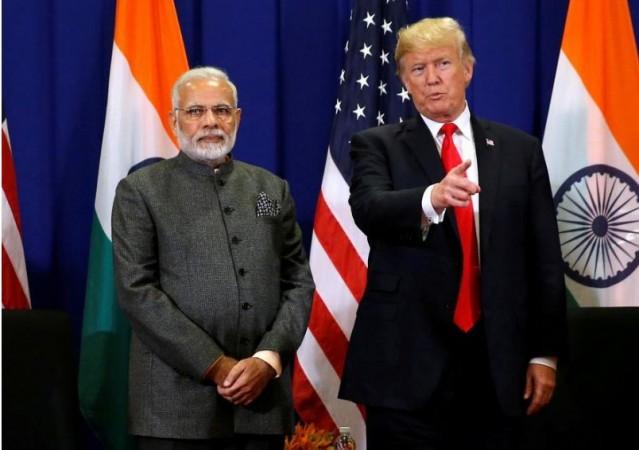Human Rights organization Amnesty International on Monday said "Anti-Muslim sentiment permeates the policies of both the United States and Indian leaders." The remark was issued in a joint statement given by the Amnesty International India and Amnesty International USA.
The statement has come as US President Donald Trump is on a two-day tour to India to meet the Prime Minister Narendra Modi amid trade tensions between the two countries.
In the statement, Margaret Hunang, Amnesty International USA's executive said, "For decades the U.S.-India relationship was anchored by claims of shared values of human rights and human dignity. Now those shared values are discrimination, bigotry, and hostility towards refugees and asylum seekers."

The human rights organisation said that bigotry and hostility towards refugees and minorities have become the shared values between the two countries.
Hunag was referring to Donald Trump's Muslim travel ban to the United States and the Citizenship Amendment Act brought by the government of Prime Minister Narendra Modi in India. Both policies are seen as anti-Muslims as they legitimised discrimination based on religious grounds.
"The internet and political lockdown in Kashmir has lasted for months and enactment of CAA and the crackdown on protests has shown leadership that is lacking empathy and a willingness to engage," said Avinash Kumar, Executive Director, Amnesty International India. "We call on President Trump and Prime Minister Narendra Modi to work with the International community and address our concerns in their bilateral conversations."
The human rights organisation took the passage of CAA and abrogation of Article 370 in Jammu & Kashmir in consideration while assessing the situation in India. It said that the CAA, which extends Indian citizenship to people of every faith other than Islam from Afghanistan, Pakistan and Nepal - along with National Register of Citizens and National Population Register - against minorities, will push the Muslims towards the limbo of detention and statelessness.
The organisation also noted the heavy-handedness of the police in handling anti-CA protests that resulted in the deaths of over 30 people, saying, "statements such as "identify them (the protestors) by their clothes" or "shoot the traitors" by Prime Minister and his party workers, peddled the narrative of fear and division that has fuelled further violence."
Referring to abrogation of Article 370 in Jammu & Kashmir, the organization said, "internet services remain only partially available in the former state and political leaders remain under repressive Jammu & Kashmir Public Safety Act."
Donald Trump, who has also faced opposition back in the US over his controversial Muslim travel ban targeting citizens from six countries, is said to raise the issue of religious freedom in India during his meeting with PM Narendra Modi, according to a senior Trump administration official.

















